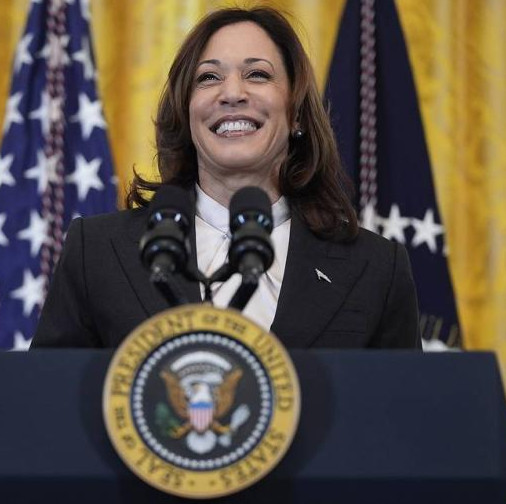The Turkey-Azerbaijan axis and the two countries' strengthening military-political and other types of cooperation remain one of the main factors in the Transcaucasia geopolitics. At the same time, this factor can hardly be called pacifying or at least stabilizing for the region. And it's about more than Baku purchased weapons from Ankara worth $117.315 million in January to April this year, which is thirteen (!) times more as compared to the same period in 2020, namely $8.795 million. It's about readiness to use these weapons or at least rattle them formidably to achieve the goals determined. A willingness of this kind is present in both the exporter and the importer; they do not conceal it at all to occasionally result in specific practical deeds.
This time, the Syunik region of Armenia has become an object for aggressive Azerbaijani moves and the "Turkic brothers" standing behind them. The transport corridor running through it and connecting Turkey and the Nakhichevan Autonomous Region of Azerbaijan with most of Azerbaijani territories and providing continuous logistics to Turkey in the Caspian direction, was to become the allies' chief trophy in the Second Karabakh War. However, the corridor opening is being delayed over a number of unresolved issues that have accumulated since the end to hostilities. Particularly the issue of Armenian war prisoners in Azerbaijan. Moreover, Armenia associates the corridor opening with the simultaneous appearance of another one across the Azerbaijani regions, rightfully anticipating an even greater sovereignty loss.
The delay irritates Baku. The Aliyev regime undertakes major efforts to speed up the process, including explicit hints that it may not be limited to the extraterritorial corridor, and the entire Syunik has a chance to find its way into Azerbaijan. Thus, two and a half months ago, the 14th summit of the Economic Cooperation Organization (ECO) saw Ilham Aliyev say the new transport corridor would "pass through the historical territory of Azerbaijanian Zangezur (Syunik)." The statement naturally caused overwrought angst with Yerevan, and the Azerbaijani side clarified that it was about historical facts alone, not about expansionist claims. But on April 20, Aliyev made an even more unequivocal statement: "If Armenia wants, the issue may be resolved in a simple way; if it does not, we will solve it by force!".
On May 10, in the course of his visit to Nakhichevan, Ilham Aliyev once again repeated his theses about the corridor and the "historic lands": "Our next historic achievement will be to connect Zangilan, located in the Eastern Zangazur region, with our ancient lands of Western Zangazur and then with Nakhchivan and Turkey through Ordubad. I am sure that this will happen – I have no doubt about that." And two days later, the Azerbaijani military began attacks on the Armenian territory, which are explained to the world as "boundary amendment efforts".
A large-scale incident that has caused a serious international outcry will unlikely develop into a minor war. But it points to Baku's commitment and to Aliyev's willingness to genuinely impinge upon both Karabakh and the Republic of Armenia specifically. Or rather Aliyev and Erdogan, since there is no question of self-reliance and the lack of consultations or action coordination between the allies.
Actually, preparations for a power-projected (albeit moderate and probing) scenario made their appearance even before the incident. Speaking on national television a month ago, famous Armenian Turkologist Varuzhan Geghamyan voiced an idea that Syunik is even more important for Turkey and its Great Turan project than Karabakh. He repeated the same idea on his Facebook page after the start of the Azerbaijani "boundary amendment". He is echoed by expert Suren Sargsyan, who calls Turkey the "Syunik campaign's" chief player. According to him, the current developments (and it was intended to be so) put Russia in an awkward position, forcing it either to activate CSTO mechanisms and kick off a confrontation with the Turkic duo, or to lose even more influence in the Trans-Caucasian region to the duo's benefit.
However, as regards the loss of influence, control and a stake in the regional geopolitical balance, the Syunik events concern Iran as well. Therefore, Tehran is following the entire Armenian-Azerbaijani-Turkish situation with caution and anxiety. In late April, Iranian expert Ahmad Kazemi bluntly stated that the idea of the "Zangezur corridor" not only serves Ankara and Baku's pan-Turkic goals and ambitions, but is primarily directed against his country. And right before the escalation, journalist Vahid Sharbati, answering the question as to what Turkey needs in South Caucasus, complained that its positions in the region get strengthened due to the weakening of those of Iran. It is little wonder that Azerbaijan's "boundary amendment" has only enhanced Iran's anxiety. The Foreign Ministry of the Islamic Republic called for an early pacific settlement and expressed readiness to make a difference.
With or without Iranian mediation, again, the specific episode will be likely put on the back burner. But if the truce is not based on bringing back the status quo to the full extent, concessions can only be expected on the part of Armenia – even if those don't prove as disastrous as in November. The creeping loss of Armenian sovereignty goes hand in hand with the creeping strengthening of Turkey's love for the zero-sum game. Obviously, this year will yield new episodes of this "series", embedded in the global geopolitical turmoil.









